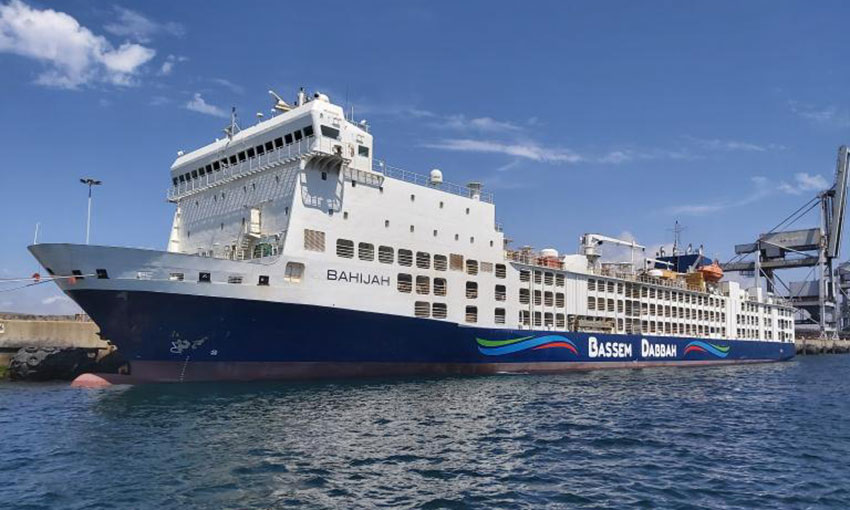A LIVESTOCK carrier ordered back to Australia has returned to waters off Fremantle but wrangling continues over the fate of the animals on board.
The 2010-built, Marshall Islands-flag Bahijah, owned by Israeli company Bassem Dabbah Shipping and managed by Korkyra Shipping of Croatia, originally sailed from Fremantle on 5 January for Aqaba, Jordan. But eleven days into its voyage the ship diverted from its destination due to the Red Sea security situation and 20 January the federal Department of Agriculture, Fisheries and Forestry ordered it back to Australia over animal welfare concerns.
Bassem Dabbah reportedly now wants to offload some animals then re-supply the ship and despatch it to the Middle East via the Cape of Good Hope and the Mediterranean, a move opposed by the RSPCA, live export opponents and animal welfare groups, some of whom protested in Perth this morning.
In a statement DAFF said it was working closely with the exporter, the live export industry, and state and federal government agencies to ensure the return to Australia of Bahijah “is managed with the highest standards of biosecurity and animal welfare maintained”.
“The exporter’s registered veterinarian on board the vessel is recording details of the health and welfare of the livestock each day and this information is being provided to the department. All reports to date indicate that there are no signs of any significant health or welfare concerns with the livestock on board,” DAFF said.
“The department is currently assessing the feasibility of an additional independent veterinarian attending the vessel to provide further assurance.
“This morning, the exporter provided additional information to the department to support their application to unload some animals in Australia prior to re-exporting the remaining animals on board the vessel.
“The department is assessing this application as a priority, including working closely with our trading partners to ensure any decision to re-export the animals would be supported by the intended market.”
DAFF said while the sheep are high quality Australian animals they would be subject to strict biosecurity controls while in Australia.
“Ultimately, all plans are commercial decisions for the exporter that must be assessed by the department as the regulator. These are complex decisions that must balance Australian biosecurity, export legislation, animal welfare considerations and the requirements of our international trading partners.”
Animal welfare groups say the Perth region is facing heatwave conditions later this week, which would make conditions on board Bahijah intolerable for beasts that have already spent almost a month at sea in cramped conditions.
The ship is listed by the operator as having capacity for approximately 8000 sheep or cows but some media reports claim there are 15,000 animals on board.

